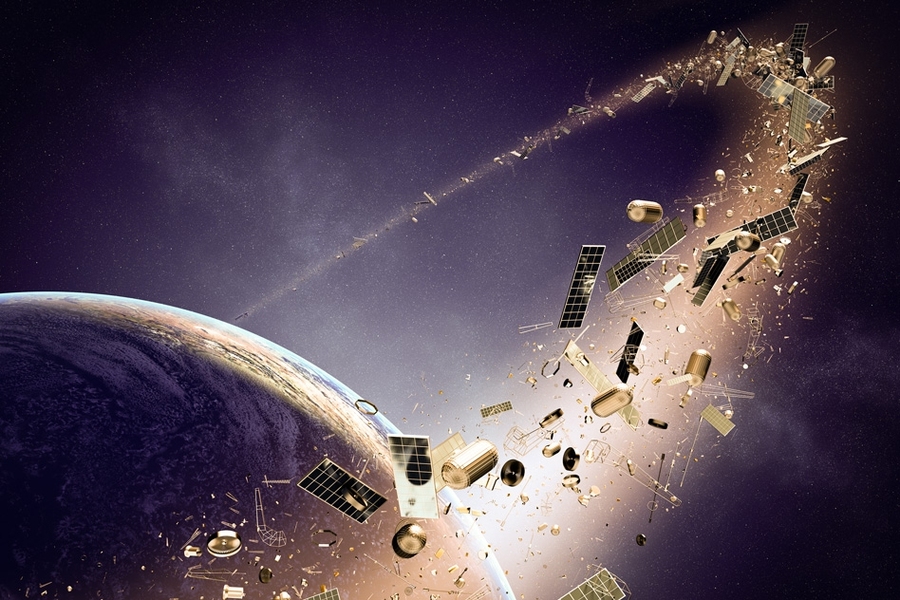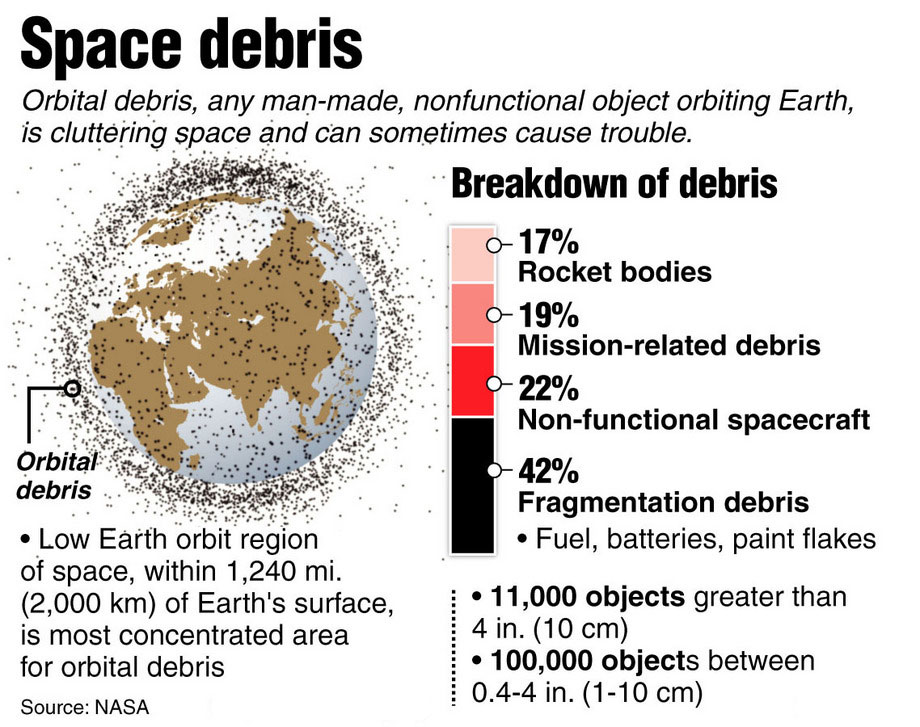 From the vast expanse of space, a new challenge has emerged: space junk!
From the vast expanse of space, a new challenge has emerged: space junk!
From rockets to satellites, the world is quickly expanding the human presence into space.
But have you ever thought about what happens to those space vehicles when they get old? Earlier this month, this topic was brought to people’s attention due to a penalty assessed against Dish Communications.
But why does it matter what happens in space? Let’s find out!
A Historic Precedent Set
For the first time in history, a company was fined for leaving satellite debris in space.
On October 2, the Federal Communications Commission (FCC) fined Dish $150,000 for failing to move one of their decommissioned satellites into higher orbit; increasing the danger of collision with functioning vehicles.
We have come to rely on satellites to transmit communications like the internet and TV signals to Earth and to capture satellite images. Organizations like Google and NOAA use Low Earth Orbit (LEO) satellites for tools like Google Maps and weather forecasts. Satellites are essential for everyday living, but lack of regulation has created a space junk problem.
What is Space Junk?
 Space junk is man-made material without use that floats out in space…materials like defunct satellites, rockets, and flecks of paint.
Space junk is man-made material without use that floats out in space…materials like defunct satellites, rockets, and flecks of paint.
We can’t see these things, so it doesn’t seem like a big deal. But in reality, space junk is very dangerous. There are more than 9,000 metric tons of space debris orbiting Earth, and the smallest object can quickly become a deadly weapon.
Debris in low earth orbits can travel up to 15 km/second – with impact speeds 10 times faster than a bullet! If there are collisions while out in space, it could be catastrophic.
Satellites that are no longer in use (decommissioned) are handled in a variety of ways. Small debris from lower orbit craft will incinerate upon reentering the atmosphere, though some larger pieces will fall to Earth.
Higher altitude satellites are easier to propel into “graveyard orbit”, which is about 200 miles above the highest orbit for functional satellites. Some companies leave their satellites wherever they quit – which is the reason Dish was fined.
Possible Solutions
The most sustainable method of managing decommissioned satellites is to simply refuel them and put them back into use, which was done by Northrop-Grumman in 2021.
Cutting-edge companies like Astroscale and ClearSpace use small spacecraft to pull defunct satellites back into Earth’s atmosphere. They have struggled to find customers, but recent events may change their outlook, and they may capitalize on the fine to develop the space junk removal industry.
The FCC’s fine is mostly symbolic, as it represents a fraction of Dish’s $16.7 billion annual revenue. Still, it’s sure to make other satellite operators wary, as other countries may follow suit and enforce similar policies. Companies want to protect their reputations, and being fined for polluting space isn’t impressive.
With the FCC’s historic fine and the advancements being made in space junk removal, we have a brighter outlook for the future of sustainable space exploration. In fact, the European Space Agency has planned the world’s first space junk removal mission for 2025. Hopefully, more companies will take responsibility for their contributions to space debris, and help keep outer space clean!
Sources: BBC, The Conversation, FCC, NY Times, Emergen Research, Technology Review







